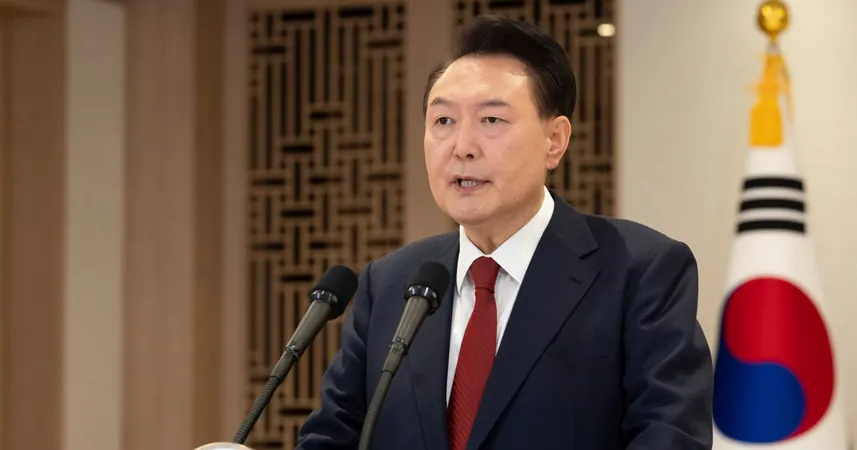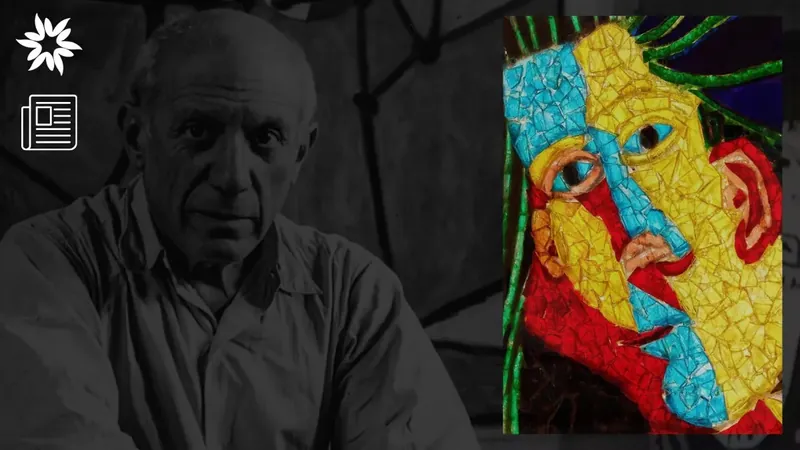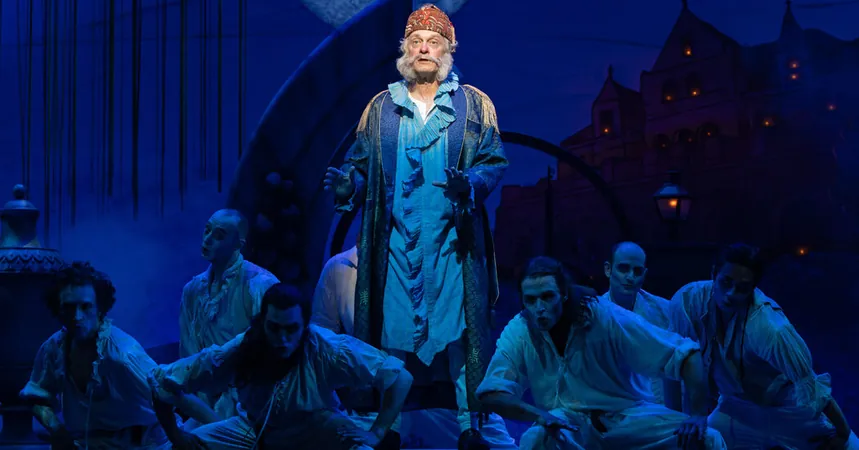
South Korea in Political Turmoil: Arrest Warrant Requested for Former President Yoon Suk-yeol Following Martial Law Scandal
2024-12-30
Author: Ying
In a shocking development for South Korea's political landscape, authorities have requested an arrest warrant for suspended President Yoon Suk-yeol over his controversial martial law declaration. The Joint Investigation Headquarters announced this request on Monday, citing charges of insurrection and abuse of power against the former leader.
The investigative team, which includes officials from the Corruption Investigation Office for High-ranking Officials (CIO), police, and the Ministry of Defence, has taken this step after Yoon failed to respond to three summons for questioning. Should a court approve the warrant, it would mark a historic first in South Korea, highlighting the significant gravity of the situation.
While Yoon enjoys certain legal protections as a sitting president, he is not immune to prosecution in cases of rebellion or treason. His attorney, Yun Gap-geun, has argued that the CIO has exceeded its authority and indicated plans to take 'formal steps' in response to the request for the arrest warrant.
The political crisis ignited by Yoon's martial law declaration on December 3rd sent shockwaves throughout the nation, evoking fears reminiscent of South Korea's fraught history under military rule. The declaration, lasting just six hours, saw heavily armed troops clash with lawmakers, raising eyebrows and igniting debates about the nation’s democratic integrity.
Witnesses reported that Yoon allegedly instructed a senior defence official to empower soldiers to use their weapons as they entered the National Assembly, an act that could have led to devastating ramifications had it not been countered. After intense backlash, Yoon retracted the martial law order following a unanimous vote by lawmakers.
Yoon justified his desperate actions by claiming a threat posed by 'anti-state forces' and accusing opposition members of obstructionism. This dramatic escalation in South Korea's political crisis deepened as the opposition-controlled legislature voted to impeach acting president Han Duck-soo, transferring presidential authority to Deputy Prime Minister and Finance Minister Choi Sang-mok.
The impeachment of Han was precipitated by his refusal to promptly appoint justices to fill crucial vacancies on the Constitutional Court, which will decide on Yoon's impeachment. The court has up to six months to reach a verdict, potentially leading to a historic decision that could either restore Yoon to power or permanently remove him from office.
The unfolding political drama places South Korea's democratic institutions under intense scrutiny. As many citizens express their concern over the state of governance and political stability, the implications of this crisis are likely to resonate for years to come. What does this mean for South Korea's future? Only time will tell if the current leadership can navigate these treacherous waters or if more upheaval lies ahead.







 Brasil (PT)
Brasil (PT)
 Canada (EN)
Canada (EN)
 Chile (ES)
Chile (ES)
 Česko (CS)
Česko (CS)
 대한민국 (KO)
대한민국 (KO)
 España (ES)
España (ES)
 France (FR)
France (FR)
 Hong Kong (EN)
Hong Kong (EN)
 Italia (IT)
Italia (IT)
 日本 (JA)
日本 (JA)
 Magyarország (HU)
Magyarország (HU)
 Norge (NO)
Norge (NO)
 Polska (PL)
Polska (PL)
 Schweiz (DE)
Schweiz (DE)
 Singapore (EN)
Singapore (EN)
 Sverige (SV)
Sverige (SV)
 Suomi (FI)
Suomi (FI)
 Türkiye (TR)
Türkiye (TR)
 الإمارات العربية المتحدة (AR)
الإمارات العربية المتحدة (AR)